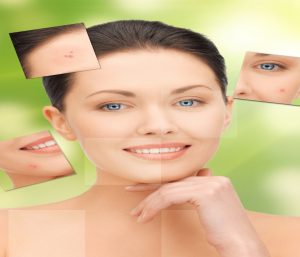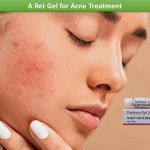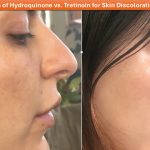When acne rears its ugly head on your face, you want to remove it fast. Just like other skin care products, the kind of acne you have and the ingredients you use to eliminate it play a big role in achieving the results.
Acne is based on skin conditions; acne generally develops in areas that contain the maximum concentration of sebaceous glands such as the face, neck, upper arms, chest, and back. Acne can be worsened by external factors including mechanical obstruction (i.e shirt collars, helmets etc, occupational exposures.
Generally, acne cure varies and is dependent on the severity of your condition. Most teenagers and adults can manage mild acne with over-the-counter topical treatments such as acne cream and salicylic acid products that get rid of blackheads and whiteheads and helps clear blocked pores. For more severe conditions, dermatologists may suggest prescription or procedures such as laser treatment or chemical peel.
All acne treatment aim to achieve the following things: limit sebum production, kill acne bacteria, normalize skin shedding and reduce inflammation
.
Different treatment options:
- Benzoyl peroxide products– For creams and lotions that contain benzoyl peroxide, the acne begins to heal in one or two weeks. However, the treatment should be continued for several more days, even months, depending on the severity of the condition.
- Retinol, alpha, or salicylic acid products– Skin products with exfoliants such as retinoids (retinoic acid or retinol), alpha-hydroxy acids (glycolic and mandelic, among others), and beta-hydroxy acid (salicylic acid) are excellent if the acne is comedonal. The blackhead and whitehead type acne will begin to heal within one or two weeks. This method of treatment should also be continued for several weeks or months.
- Spot treatments– Acne spot treatments are generally very effective, and the results with these products are faster than other treatments as they generally contain a higher concentration of actives. Remember to apply the product only on the acne spots as otherwise the high concentration of ingredients may irritate the acne-free parts of the skin.
- Oral products– It is possible that creams and lotions do not work for everyone. In such cases, an oral product such as tretinoin is suggested. The acne starts to dry within one or two weeks of application. However, the solution must be continued for several months to sustain the benefits.
The availability of different treatments can be confusing and overwhelming for the millions of men and women those are affected with acne. Avoid making a mistake while treating acne.
One of the most common mistakes in acne treatment is not knowing how long to continue a treatment. While treating your acne, remember, it takes time for the skin to respond to the remedies that you are using and applying. Even if the acne occurred suddenly, it generally takes time to heal. It can take between 6 to 12 weeks. Experts recommend that you give at least one month to a treatment method, and then keep using it if you find any improvement.
Often due to desperation to get faster results, people end up trying too many products at once. This can cause significant skin damage. It is therefore suggested to try one thing at a time. No matter how severe or mild your acne is, getting it treated sooner rather than later is essential to get it under control and reduce the chances of permanent scarring. You should give enough time to heal acne else your mild case of acne will progress to a more severe form.
There are certain things that you should keep in mind while treating acne:
- You should apply topical cure on the entire affected area, and not just on the individual pimples.
- You should know that applying more of the ointment does not mean it will work faster or better. It is, therefore, best to apply a thin layer evenly.
- It is important to use the product as recommended by your dermatologist.
- If you are using products that contain benzoyl peroxide, remember, it can make your skin sensitive to the sun. Therefore, make sure to wear sun protection while outdoors and reduce sun exposure.
- Apply your ointment first and let it dry before you apply any make-up.
- Keep using the product even after acne has improved to prevent the formation of new acne.
- You must not take acne cream if you are pregnant as hormonal agents can lead to birth defects.
- Oral contraceptives and hormonal agents are generally not recommended for women who are above 35 years.
Once you have been recommended acne cream by your dermatologist, it is essential that you use the product properly and keep using it for as long as your dermatologist recommends.
Some ointment may cause dryness, flaking, peeling, irritation, redness and even flare-ups. Also, it can get worse before it gets better. These side effects can sometimes lead patients to halt their treatments early and even feel that their treatments are not working. This is why it is important to ask your physician why he/she has advised a certain treatment and how long to use it and what results to expect. Make sure to know the side effects too that are likely to happen when you take a particular ointment so that you do not give up on it mid-way.
Chances of acne reoccurrence:
No one knows how long acne will last for him or her. Many teenagers find that their acne improves as they get older while others have acne well into adulthood. The good news is that acne can be treated and future occurrences can be prevented. For prevention, it is essential to take good care of your skin and follow a healthy lifestyle along with recommended treatment plan by your dermatologist. It has been proven that if you stick to a treatment plan for long enough, it can lead to positive results.




